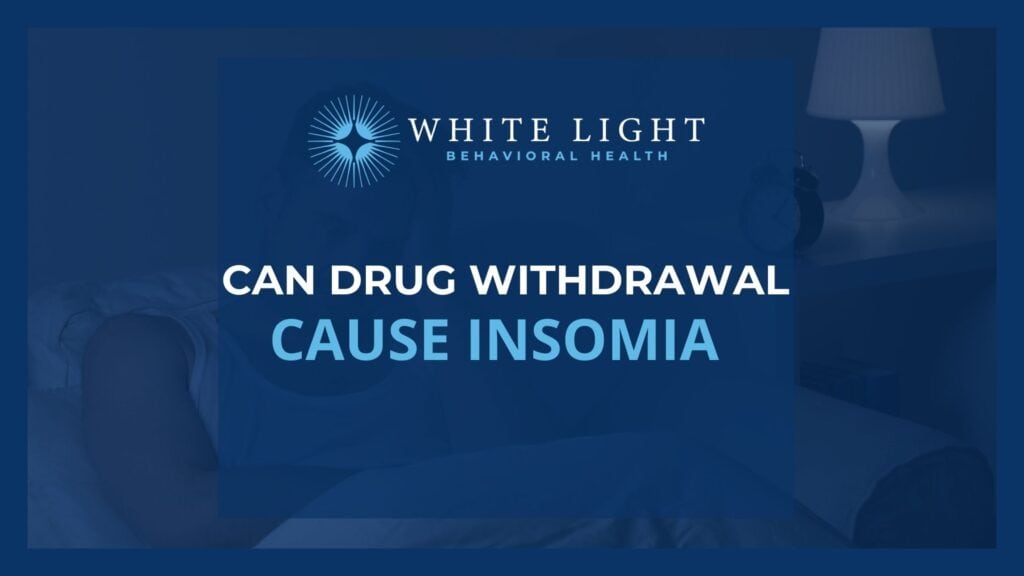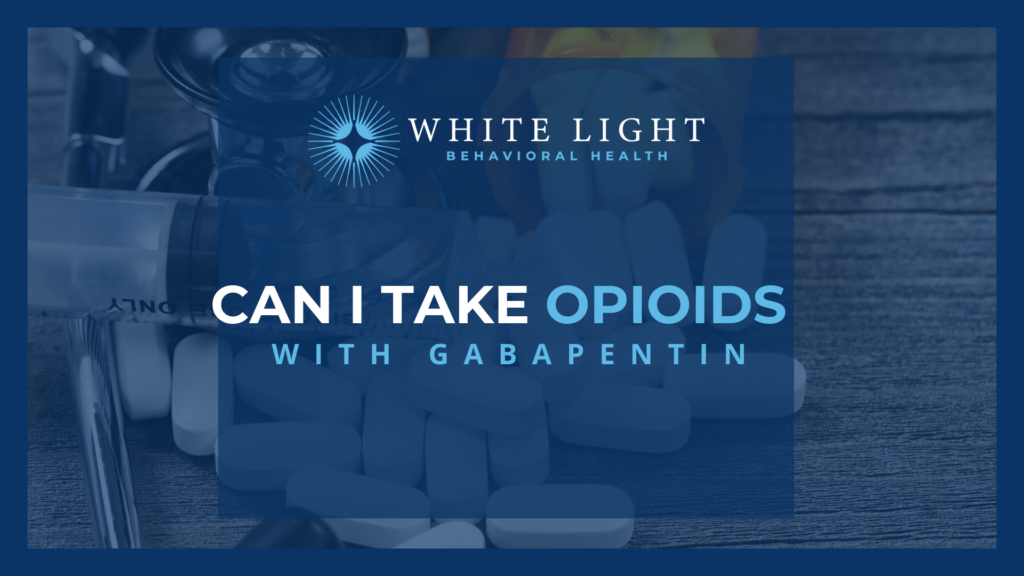Insomnia and the Symptoms of Drug Withdrawal
Insomnia is a sleep disorder characterized by difficulty falling asleep, staying asleep, or both. It can result in tiredness, lack of energy, impaired concentration, and mood disturbances. Insomnia is a common complaint, with up to 30% of adults in the United States reporting difficulty sleeping.
Drug withdrawal is the process of discontinuing the use of substances taken for a prolonged period. During this process, individuals may experience physical and psychological symptoms, such as anxiety, depression, irritability, insomnia, and fatigue. Withdrawal can be a challenging and uncomfortable experience and can be particularly difficult for individuals who have become dependent on drugs or alcohol.
Can Drug Withdrawal Cause Insomnia?
Yes, drug withdrawal can cause insomnia. When individuals discontinue drugs or alcohol after prolonged use, their bodies must adjust to the absence of the substances. During this process, withdrawal symptoms can occur. Insomnia is one of the most common withdrawal symptoms. Individuals may experience disrupted sleep patterns, including difficulty falling or staying asleep, or they may experience long periods of wakefulness during the night.
Drug withdrawal can also cause changes in sleep architecture, which is the process of going through the different stages of sleep. During this process, individuals may be more likely to wake up at night and have difficulty returning to sleep. This can lead to feelings of fatigue and difficulty concentrating as well as mood disturbances.
Symptoms of Insomnia Caused by Drug Withdrawal
Insomnia can manifest in a variety of different symptoms. These may include difficulty falling or staying asleep, waking up frequently during the night, waking up too early in the morning, and feeling unrested upon waking. Additionally, people experiencing insomnia caused by drug withdrawal may have difficulty concentrating and feel irritable and moody throughout the day.
The physical symptoms of drug withdrawal can also contribute to insomnia. These may include headaches, nausea, sweating, muscle aches and pains, and increased heart rate. All of these symptoms can make it difficult to relax and fall asleep.
In addition, psychological symptoms of drug withdrawal, such as anxiety and depression, can also contribute to insomnia. Anxiety can make it difficult to relax and fall asleep, and depression can cause a lack of motivation to go to bed. These psychological symptoms can be difficult to manage and require additional support.
Cravings for the drug can also cause insomnia. Cravings can be intense and disruptive, making falling or staying asleep difficult. Additionally, if individuals use the drug to help them sleep, withdrawal can cause insomnia as the body adjusts to not having it.
Insomnia caused by drug withdrawal can be short-term or long-term, depending on the individual. If insomnia persists and interferes with your daily life, it is important to seek professional help. Treatment for insomnia caused by drug withdrawal can include lifestyle changes, such as establishing a regular sleep routine, avoiding caffeine and alcohol, and engaging in relaxation techniques. Additionally, cognitive behavior therapy can help manage withdrawal’s psychological symptoms and improve sleep.
Factors That Can Affect the Severity of Drug Withdrawal
Drug withdrawal can be a difficult and uncomfortable experience, and the severity of the withdrawal symptoms can vary from person to person. Factors that can affect the severity of drug withdrawal include the type of drug being used, the length of time the drug has been used, the dosage of the drug, and the individual’s health and genetic history.
Type of Drug
Different drugs have different withdrawal symptoms, and the severity of these symptoms can vary. For example, drugs such as alcohol, benzodiazepines, and opioids can cause more intense physical symptoms, such as sweating, nausea, and vomiting. In contrast, drugs such as stimulants can cause more psychological symptoms, such as depression and anxiety. Additionally, some drugs, such as alcohol, can cause more dangerous withdrawal symptoms, such as seizures, that can be life-threatening.
Length of Time
The time a drug has been used can also affect the severity of the withdrawal symptoms. The longer you use a drug, the more difficult it can be for the body to adjust to not having it present. This can lead to more severe physical and psychological symptoms that can be more difficult to manage.
Dosage
Higher doses of drugs can lead to more intense physical and psychological symptoms as the body is more dependent on the drug and needs to adjust to its absence. Additionally, higher doses of drugs can increase the risk of more dangerous withdrawal symptoms, such as seizures and delirium.
Health and Genetic History
Individuals with a family history of medical conditions, such as heart disease, can increase the risk of more severe physical symptoms of drug withdrawal. In contrast, mental health conditions, such as depression and anxiety, can make psychological withdrawal symptoms more difficult to manage.
Additionally, certain genetic factors can make individuals more sensitive to the effects of drugs, increasing the severity of the withdrawal symptoms. Therefore, it is important to consider an individual’s health and genetic history when determining the severity of drug withdrawal.
Individual Factors
Every person is different, so everyone’s experience of withdrawal will be different. Age can be a factor as withdrawal symptoms can be more intense in older individuals. Additionally, factors such as lifestyle and environment can also affect the severity of withdrawal symptoms, as stress and lack of support can increase the intensity of the symptoms. It is also important to consider an individual’s psychological and emotional state as psychological distress and emotional instability can increase the severity of drug withdrawal symptoms.
Treatment Options
To treat insomnia caused by drug withdrawal, it is crucial to address the underlying issue of drug dependence with a qualified team of professionals. Treatment for drug dependence can involve a combination of medication, behavioral therapy, and counseling.
Medication
Medication may be prescribed to help manage the symptoms of drug withdrawal. This may include medications to reduce anxiety, depression, cravings, and medications to help manage insomnia. Examples of medications commonly used to treat insomnia caused by drug withdrawal include benzodiazepines, such as lorazepam, and sedatives, such as zolpidem.
Medications should not be used as a long-term solution to insomnia caused by drug withdrawal. If medications are prescribed, they should be used in combination with other strategies, such as lifestyle changes and cognitive behavior therapy, to help improve sleep.
Cognitive Behavior Therapy
Cognitive behavior therapy (CBT) can help manage the psychological symptoms of drug withdrawal, such as anxiety and depression, that can contribute to insomnia. CBT can help an individual identify any negative thoughts or behaviors contributing to insomnia and develop strategies to help manage and reduce these. Additionally, CBT can help to change any unhelpful behaviors, such as excessive worrying or rumination, that can prevent an individual from falling asleep or staying asleep.
CBT can also help establish healthy sleep routines and behaviors. For example, it can help an individual identify activities or behaviors disrupting sleep and develop strategies to minimize or avoid these. CBT can also help to reduce the amount of time spent in bed and increase the amount of time spent in activities that help to promote sleep.
Lifestyle Changes
Lifestyle changes can be an effective way to manage insomnia. Establishing a regular sleep routine is important as it can help regulate the body’s internal clock and make it easier to fall and stay asleep. Additionally, limiting exposure to bright screens, avoiding caffeine and alcohol, and engaging in relaxation techniques such as meditation, yoga, and deep breathing can be beneficial. Exercise can also help manage insomnia as it can help to reduce stress and improve sleep quality.
It is also vital to create a comfortable sleep environment. This may include keeping the bedroom dark, quiet, and calm, avoiding napping during the day, and avoiding using electronic devices in bed. Additionally, it is important to ensure that the bed and bedding are comfortable as this can help to promote restful sleep.
Counseling
A counselor can help an individual identify and address any underlying insomnia-related issues. This may include exploring the individual’s relationship with the drug and any underlying psychological issues, such as anxiety or depression, that contribute to insomnia.
Counseling can also be beneficial in helping an individual develop strategies to manage stress, anxiety, and cravings that can interfere with sleep. A counselor can help individuals develop healthy coping skills and establish a regular sleep routine.
Support Groups
Support groups can be a helpful way to manage the symptoms of drug withdrawal and insomnia. Support groups can provide a safe and supportive environment where individuals can share their experiences and feelings and receive support from others going through similar experiences.
Support groups can also provide helpful information and advice on managing symptoms, such as insomnia, as well as providing an opportunity to ask questions and receive feedback from professionals and peers. Support groups may help individuals develop healthy coping skills and establish a regular sleep routine too.
Why Is Sleep Important to Mental Health?
Sleep is an integral part of your mental health and well-being as it plays a vital role in helping to regulate mood, emotions, and cognitive functions. The brain can repair, restore, process, and store information during sleep. Sleep can also help reduce stress and anxiety and improve concentration and focus.
Sleep also helps regulate hormones, such as cortisol and serotonin, essential for regulating mood and emotions. Additionally, sleep can help to reduce inflammation, which can have a positive effect on mental health.
Sleep deprivation can have a significant impact on mental health. It can lead to difficulty concentrating, low energy, mood disturbances, and increased stress and anxiety. It can also contribute to a greater risk of developing mental health conditions, such as depression and anxiety.
Ensuring you get enough sleep to maintain good mental health is crucial. Establishing a regular sleep routine, limiting exposure to blue light, avoiding caffeine and alcohol, and engaging in relaxation techniques can help to promote restful sleep. Additionally, if you are struggling to sleep, it is important to seek professional help.
White Light Behavioral Health Center is a mental health center that services individuals struggling with insomnia, drug withdrawal, and other mental health issues. Our team of experienced counselors, therapists, and psychiatrists provides individualized treatment plans to help our clients reach their goals.
We offer a range of services, such as cognitive behavior therapy, relaxation techniques, lifestyle changes, and medication management, to help our clients manage their symptoms and improve their sleep. Additionally, we provide support groups and educational workshops to help our clients learn more about drug withdrawal, insomnia, and mental health.
At White Light Behavioral Health Center, we believe in providing our clients with the tools they need to make lasting changes. Our compassionate and experienced team is dedicated to helping our clients find balance, peace, and well-being.

Share This Post



